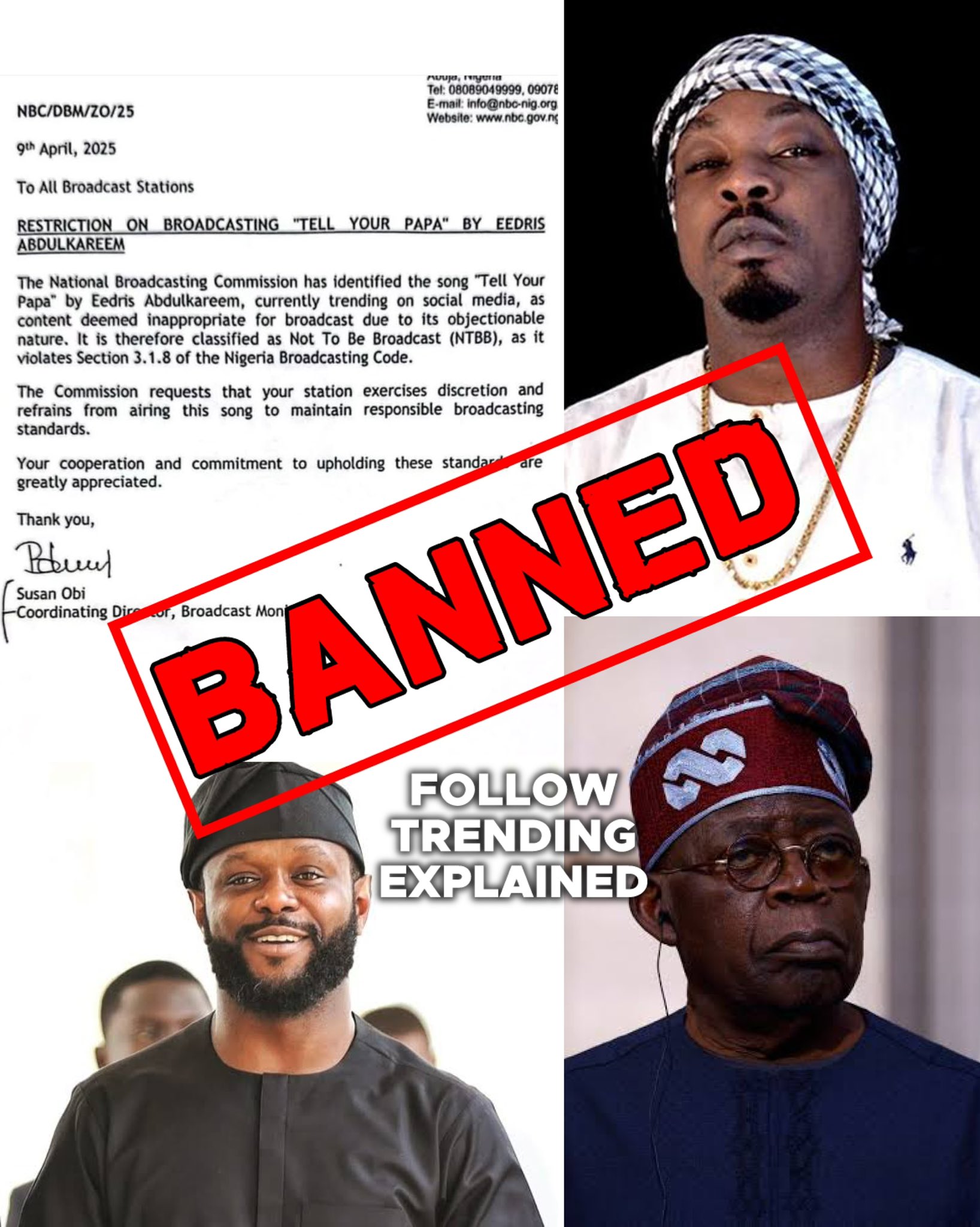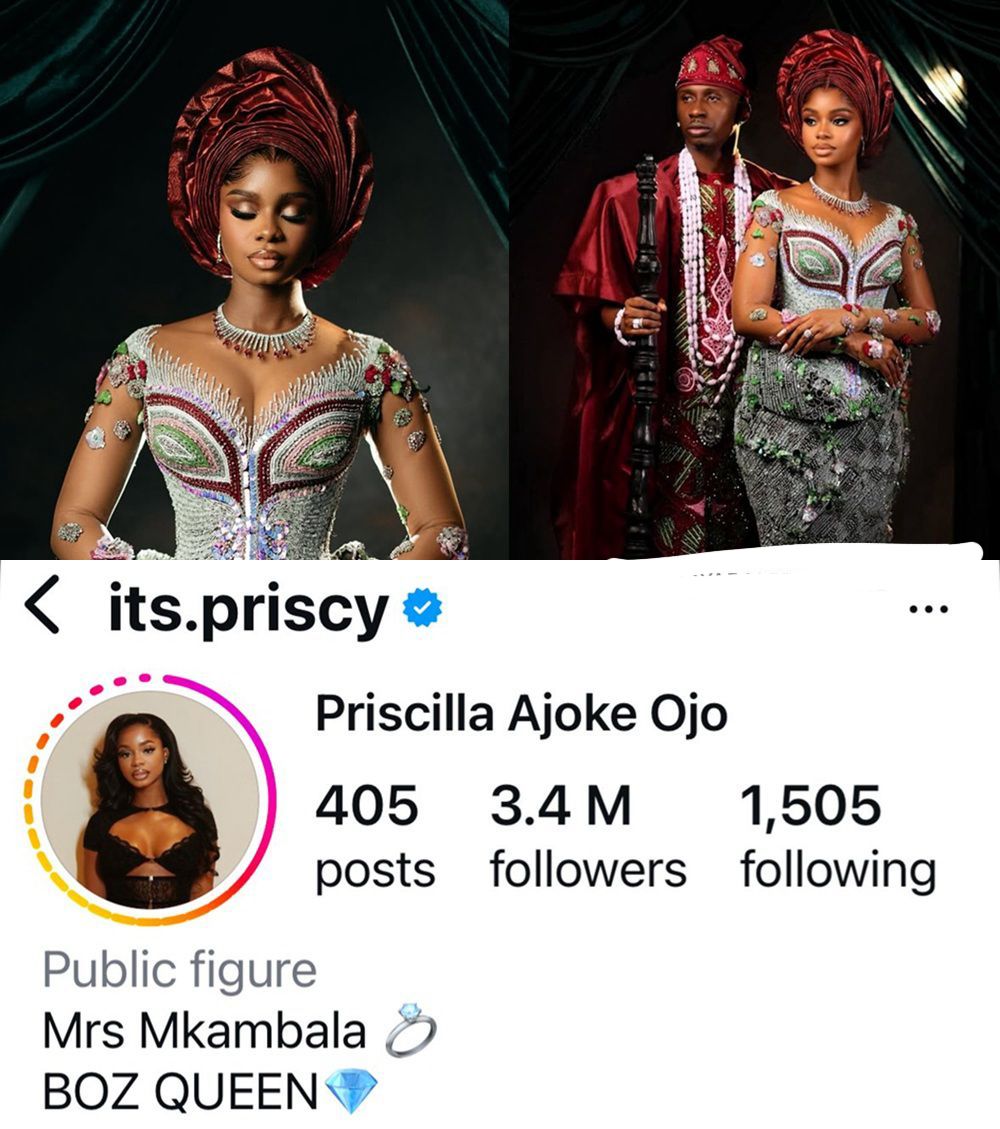
NBC Bans Eedris Abdulkareem’s ‘Tell Your Papa’ Song on April 10, Raising Free Speech Concerns in Nigeria

On April 10, 2025, the National Broadcasting Commission (NBC) in Nigeria issued a directive prohibiting the broadcast of veteran rapper Eedris Abdulkareem’s latest track, "Tell Your Papa," on radio and television stations.
The decision, which has ignited widespread discussions, stems from the song’s pointed lyrics that criticize President Bola Tinubu’s administration and specifically target his son, Seyi Tinubu.
The NBC labeled the song’s content as inappropriate, citing a violation of Section 3.1.8 of the Nigeria Broadcasting Code, which bans material deemed offensive or contrary to public decency.
This move has not only stirred controversy but also reignited debates about censorship and the state of free expression in Nigeria.
Eedris Abdulkareem, a rapper known for his unapologetic political commentary, uses "Tell Your Papa" to voice the frustrations of many Nigerians grappling with economic hardship, insecurity, and unfulfilled government promises.
The song directly addresses Seyi Tinubu, urging him to convey the public’s grievances to his father, President Tinubu. Lyrics such as “Seyi, how far? I swear your papa, no try—there are too many empty promises” and “Try to travel by road without your security makes you feel the pains of fellow Nigerians” highlight the stark contrast between the elite’s lifestyle and the struggles of ordinary citizens.
Abdulkareem also references the rampant insecurity, rapping, “Kidnappers dey kill Nigerians,” and calls out Seyi’s use of private jets, noting that such privileges shield him from the nation’s challenges.
This isn’t the first time Abdulkareem has faced censorship for his music. In 2004, his hit song "Everything Jaga Jaga," a protest against then-President Olusegun Obasanjo’s administration, was similarly banned for allegedly portraying Nigeria in a negative light.
The term "Jaga Jaga," meaning chaos or disorder in Yoruba, became a cultural touchstone for critiquing governance in Nigeria.
In "Tell Your Papa," Abdulkareem revisits this theme, stating, “Tell your papa this one don pass jagajaga,” suggesting that the current state of affairs has surpassed the disorder he critiqued two decades ago.
The rapper, in response to the recent ban, has argued that it reflects Nigeria’s stagnation, vowing to continue using his music as a platform for advocacy.
The NBC’s decision has sparked a firestorm of reactions on social media, with many viewing it as an attempt to suppress dissent. The song’s ban from traditional media has paradoxically amplified its reach online, as users share and discuss its lyrics on platforms like X.
For instance, a user with the handle @irrationalkong
humorously noted, “Na this ban go make me go listen to the song sef,” illustrating how censorship can backfire by driving curiosity and engagement on the internet.
Others, like @Righteous_pii, defended Abdulkareem, stating, “He said the truth and they are shunning it,” while @Eng_howard7 pointed out the internet’s role in circumventing traditional media bans, saying, “They forget that the internet does more than the local radio and TV station.”
The controversy surrounding "Tell Your Papa" underscores broader concerns about freedom of speech in Nigeria.
While the country’s constitution guarantees freedom of expression under Section 39(1), the government’s history of media control and censorship—such as the military’s role in censorship from 1979 to 1983—casts a long shadow.
The ban on Abdulkareem’s song has reignited discussions about the balance between regulation and the right to critique those in power, with many questioning whether such actions stifle artistic expression and public discourse in a democratic society.
As the debate rages on, Abdulkareem remains defiant, promising to continue his musical activism despite the restrictions.


